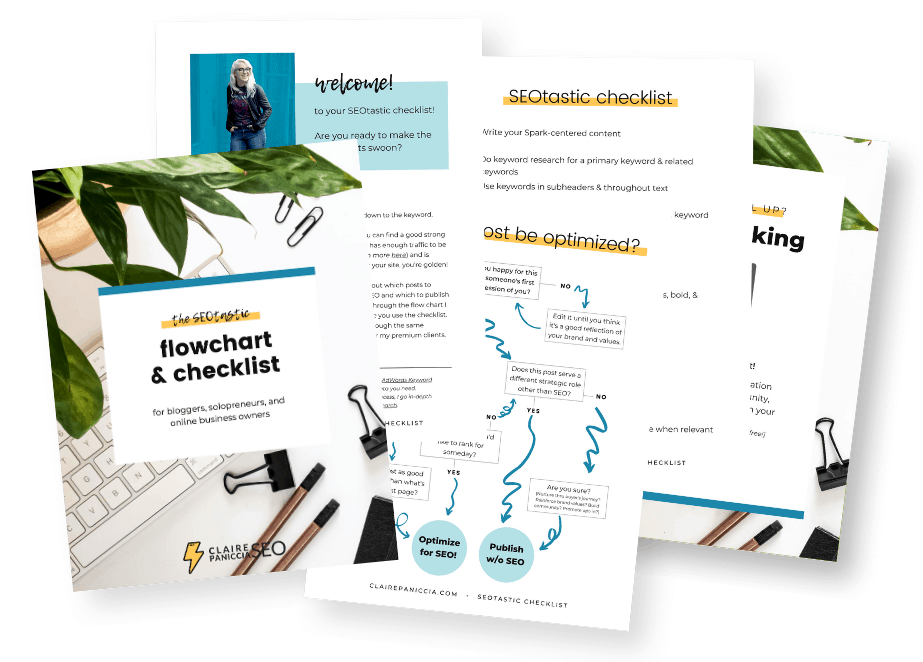
I want to tell you about one of my clients from last year. (You might resonate with where she started on SEO)
Nora is a classic long-time blogger over at The Professional Hobo.
When we first started talking about working together (this was early 2018), we got on a discovery call, like ya do. One of my main goals for the call was discerning where the starting line was at with her site, SEO-wise.
What kind of foundations would I be working with?
“So in the gazilion years that you’ve been blogging, what’s been your SEO strategy? How conscientious have you been about SEO as you’ve published all this content?”
She laughed.
“I’ve got Yoast? I think? Sometimes I put a phrase in Yoast and try to get the green lights? Other than that, pretty much nothing,” she said, laughing.
“Are you doing any keyword research for what keywords to use before you go for the green lights?
“Uh… nope. I just guess based on the topic of the post.”
This is pretty much the exact conversation I’ve had with countless other online entrepreneurs and bloggers.
[And that last question I asked her? Remember that, because we’ll come back to it.]
Most online entrepreneurs have SEO all wrong.
But don’t worry, it’s not you. And it’s not a crazy impossible thing either; I promise! We just need to fill in some key foundational concepts to get you started on the right foot.
The big important foundational concept you can't SEO without:
Google wants what Humans want.
This right here is the absolute bottom line foundational concept of SEO. Everything else is tips, tricks, and techniques.
Here's the thing: Google is basically a swarm of Robots.
(I mean, technically it’s a mega super advanced algorithm scanning the entire internet, but it’s much more fun to think of it as a swarm of Robots)
That swarm of Robots has one raison d’etre: to give searchers the best results possible.
But Robots don’t understand language and content like Humans do.
They can’t watch videos, see images, register sarcasm, or follow unspoken emotions.
But they know Humans love that stuff. So they do the best they can to put that kind of awesome content in front of the Humans looking for it.
As content creators who also want to put awesome content (specifically: ours) in front of Humans (specifically: our ideal readers), we need to make sure our site and content resonates with those Humans, and we also have to make sure the Robots can understand it, too.
In other words:
We need to make sure our content speaks Robot as well as Human.
To make our content Robot-Human bilingual, we need more than a widget with some green lights.
The one piece of SEO that matters most (like, nothing-else-will-work-without-it level matters) is keyword research.
What is keyword research?
Whenever you read posts about how to do SEO in xyz way, there’s always some mention of inserting your keyword, or using your keyword, or optimizing around your keyword.
And I find that most online entrepreneurs often just pick a phrase out of the air and roll with it.
But without keyword research, you may know how to nock your arrow, pull the bowstring and let loose, but if you’re not aiming at the right target, you’re wasting an arrow.
Keyword research is the process of finding the right target.
Before we get into choosing keywords, let’s go back to the even bigger puzzle piece:
What's a keyword?
In SEO terms, a keyword is the word or phrase that a user types into a search engine to find information.
Keyword in this sense can also be called a search query, search term, or (if you’re a Yoast fan) focus keyword.
When you’re optimizing for SEO, you choose a keyword to target specifically so your content will show up in search results for that term.
What do you mean “target a keyword”?
When you “SEO your post”, what you’re really doing is optimizing your content to rank as high as possible in search results for your “target keyword” (the keyword you chose while doing your research).
You’ve probably seen posts with tips on how to “SEO your blog post”, and if you’re a WordPress user, you’ve also heard you need to “get the green lights” in Yoast, with similar tips to do so.
But without a strong keyword, these tips won’t really do anything to help you.
Back in the day, sites like Livestrong used to write a short, fluffy blog post targeting one particular keyword for one piece of content, and would also publish a super similar fluffy blog post target a super similar (bust slightly different) keyword.
Those days of SEO are over.
(If you’re feeling fancy, that strategy was called “exact-match long-tail keywords”, but don’t worry about it because I don’t want you to do it.)
But exact-match keywords can suck it, because Google’s algorithm has gotten much more sophisticated over the years. It can tell that “how to lose belly fat” and “lose fat in belly” are basically the same thing.
Nowadays, when you optimize your content for one keyword, you’re likely to also compete for similar keywords that mean the same thing.
The key is to intentionally target the strongest of them, and scoop up the rest along the way.
Targeting a strong keyword is exactly how you make your content speak robot
Let’s bring it back full circle.
We’ve already established that we need to make our content speak Robot as well as it speaks Human, because Robots want to show its Human users the best search results when they type something into Google.
The link between the Robots and the Humans is the search phrase (a.k.a. the keyword).
The keyword a user types into Google is the Robot swarm’s only clue as to what type of content that Human wants to see.
And if that Human is our target reader, we want to make sure the Robots know that our content should be getting in front of that person.
We do that by making it crystal clear to the Robots that our content is related to the keyword the Human is typing into the search bar (a.k.a. by targeting the keyword in our content).
But let's not get ahead of ourselves.
Before we leap into optimizing our content, don’t forget the foundational part of it: using a strong keyword.
We need to know how to aim before we go shooting arrows.
There’s a couple pieces to this:
- Knowing what exactly makes a strong keyword vs a waste-of-time keyword
- Knowing how to do the actual keyword research
- Knowing what kind of SEO juice your site has behind it and what keywords your site can grab in the search results.
I cover allllll this and then some in my Killer Keyword Research Course. In it, we clear up exactly how SEO really works (in non-tech-y speak), plus you'll learn my simple lather-rinse-repeat system for keyword research that I use for my own blog and for all my clients.
Also, Nora from the beginning of the post? Her traffic (and income) have skyrocketed since we worked together last year (check out her latest income report!)
Free SEOtastic Flowchart & Checklist





One Response
Comments are closed.